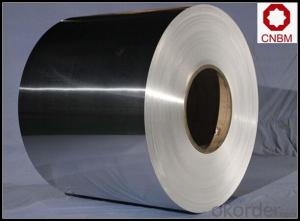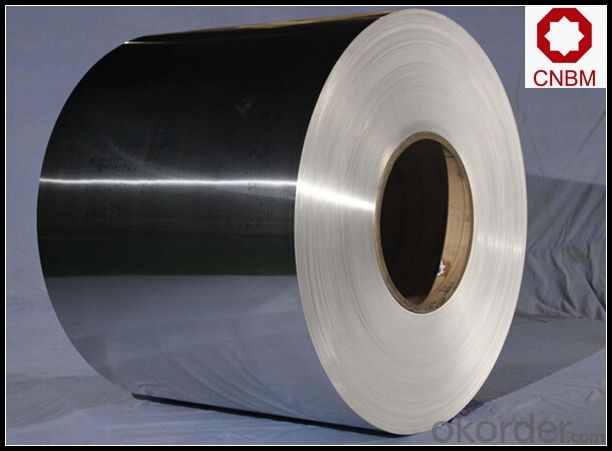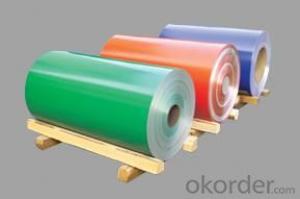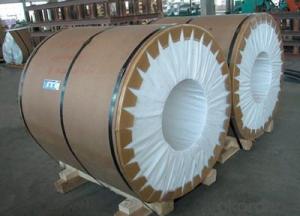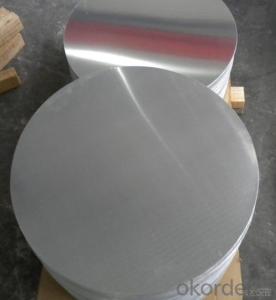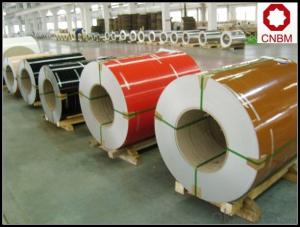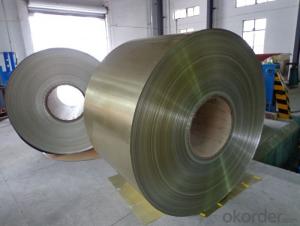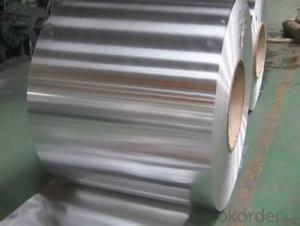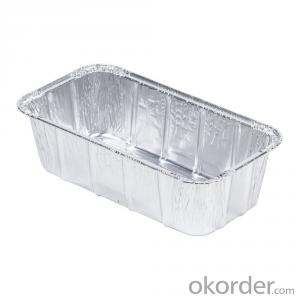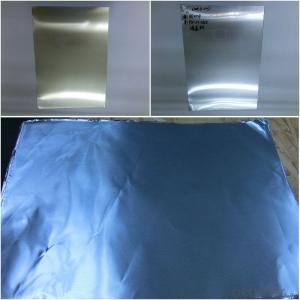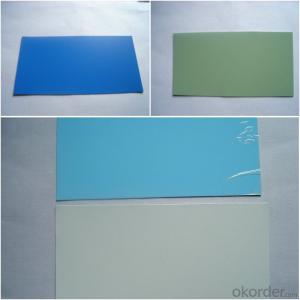Aluminum Color Coils with Different Thickness and Width
- Loading Port:
- Shanghai
- Payment Terms:
- TT OR LC
- Min Order Qty:
- 5 m.t.
- Supply Capability:
- 10000 m.t./month
OKorder Service Pledge
OKorder Financial Service
You Might Also Like
Specification
1. Specification of Aluminum Coils with Different Thickness and Width
1) Alloy | 1050, 1060,1100, 3003 3004 3105 3A21 5005 5052 etc |
2) Temper | O/H12/H14/H1/H18/H32/H34/H36/H38//H111/H112/H116/H321/T6/T651/T3/T351 etc |
3) Thickness | 0.1mm to 6mm |
4) Width | 20mm to 3300mm |
5) Coil weight | 100kgs to 6 tons depends on actual requirement |
6) Core material | Aluminum or paper |
7) Coil Inner diameter | 75mm, 150mm, 200mm, 300mm, 405mm, 505mm or as required |
8) Protective film can be added
2. Application of Aluminum Coils with Different Thickness and Width
(1).Interior: wall cladding, ceilings, bathrooms, kitchens and balconies, shutters, doors...
(2).Exterior: wall cladding, facades, roofing, canopies, tunnels,column covers , renovations...
(3).Advertisement: display platforms, signboards, fascia, shop fronts...
3. Feature of Aluminum Coils with Different Thickness and Width
*Such coil is specially designed to replace aluminum ingot, due to the high export tax of aluminum ingot, the coil has better price than ingot.
*This type of coil can fit customer's remelting furnace just like ingot, no need to make any change to the production line that was previously used for ingot. The standard coil size and weight is very suitable for the feed gate of furnace.
*This type of coil causes less material wastage than ingot when remelted.
*Our coil is made directly from ore, no need to go though the ingot making process, quality is much better than other suppliers who use ingot scrap to make coil.
Be free from Oil Stain, Dent, Inclusion, Scratches, Stain, Oxide Dicoloration, Breaks, Corrosion, Roll Marks, Dirt Streaks and other defect which will interfere with use
4. Certificate:
SGS and ROHS(if client request, paid by client), MTC(plant provided), Certificate of Origin(FORM A, FORM E, CO), Bureau Veritas and SGS (if client request, paid by client), CIQS certificate
5. Image of Aluminum Coils with Different Thickness and Width
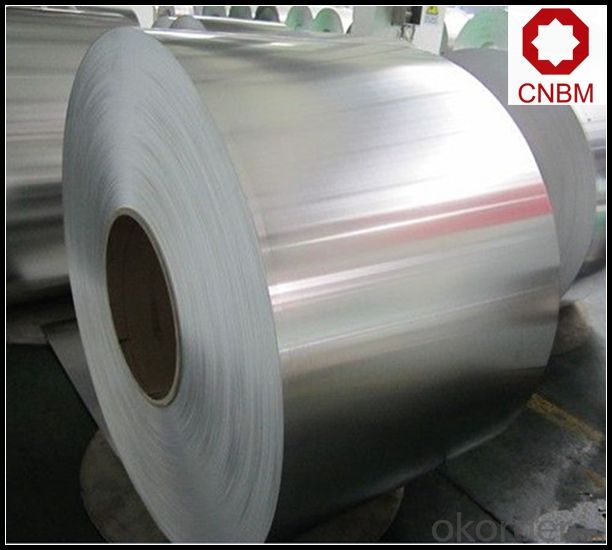
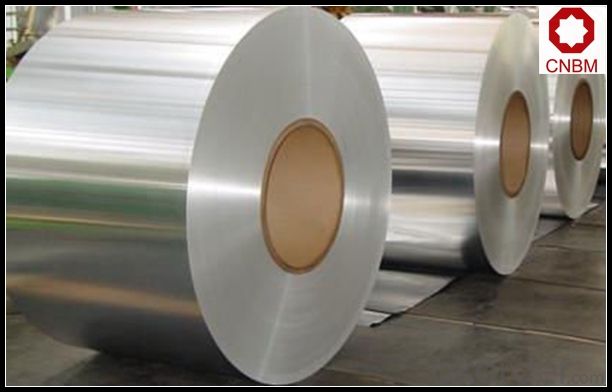
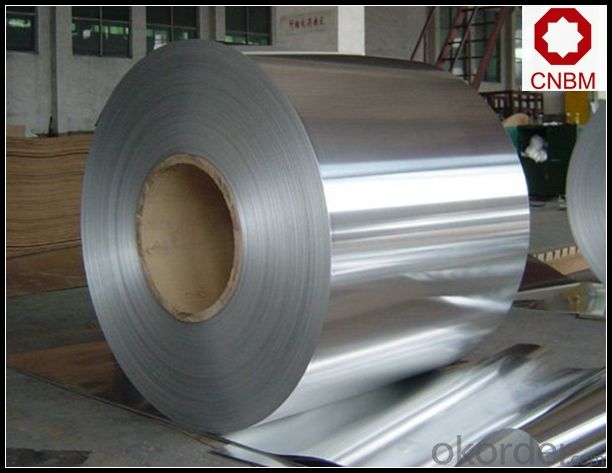
6. Package and shipping of Aluminum Coils with Different Thickness and Width
eye to wall
eye to the wall
with wood pallet (wooded case also available)
7. FAQ
1) What is the delivery time?
Dpends on actual order, around 20 to 35 days
2)What is the QC system:
We have QC staff of 20 persons and advanced equipment, each production is with MTC traced from Aluminum ingot lot.
3) What market do you mainly sell to?
Australia, America, Asia, Middle East, Western Europe, Africa etc
- Q: Can aluminum coils be used for food storage containers?
- Yes, aluminum coils can be used for food storage containers. Aluminum is a safe and commonly used material for food packaging due to its non-toxic, lightweight, and corrosion-resistant properties. It helps to preserve the freshness, flavor, and quality of food while also being recyclable and environmentally friendly.
- Q: Do you have an aluminum coil first? Is there an aluminum plate?
- Yes, all aluminium sheets are made of aluminium rolls after slitting. The general process of aluminum plate production is: aluminium ingot - aluminum water - casting roll - aluminum roll ---- aluminum plate [Ji'nan excellent aluminum industry]. Welcome to visit.
- Q: I have my brother's old wooden crutches but i see everyone using aluminum and i have the option to get aluminum ones. Is there any reason why they'd be better then my wooden ones?
- Aluminum's are lighter and adjust more easily. To set the length on woodies, have have to twist off the wing nuts, position the lower end into the rods and replace and tighten the bolts. Aluminum's are adjusted merely by pressing the lock pins.
- Q: What are the common surface preparation methods for aluminum coils?
- The common surface preparation methods for aluminum coils include cleaning, degreasing, etching, and conversion coating.
- Q: What are the maximum operating temperatures for aluminum coils?
- The specific alloy and application used can determine the maximum operating temperatures for aluminum coils. In general, aluminum coils can endure high temperatures without significant degradation or performance problems. Common aluminum alloys like 3003 and 5052 have a maximum operating temperature of approximately 300-400 degrees Fahrenheit (150-200 degrees Celsius). These temperatures are suitable for most industrial and commercial uses, including HVAC systems, refrigeration units, and heat exchangers. Specialized aluminum alloys, such as 4004 and 4343, are designed for high-temperature applications. These alloys can withstand temperatures up to 550-650 degrees Fahrenheit (290-340 degrees Celsius) without significant structural or performance damage. It's important to note that the maximum operating temperature can vary depending on factors like coil thickness, heat transfer conditions, and duration of exposure to high temperatures. Therefore, it is advisable to consult the manufacturer's guidelines or perform temperature tests to determine the safe operating limits for a specific aluminum coil in a particular application.
- Q: What are the maintenance requirements for aluminum coils?
- The maintenance requirements for aluminum coils primarily involve regular cleaning and inspection to ensure optimal performance and longevity. It is recommended to clean the coils at least once a year, or more frequently in areas with high pollution or corrosive environments. This can be done by using a mild detergent or coil cleaner and a soft brush or cloth to remove any dirt, dust, or debris that may have accumulated on the surface of the coils. Additionally, it is important to inspect the coils regularly for any signs of damage, corrosion, or leakage. Any bent fins, dents, or corrosion should be addressed promptly to prevent further damage and maintain the efficiency of the coils. If there are any signs of leakage, it is crucial to have a professional technician inspect and repair the coils to avoid any potential refrigerant leaks. Moreover, it is advisable to keep the area around the coils clean and clear of any obstructions that may obstruct airflow, such as leaves, plants, or debris. This will ensure proper airflow and prevent the coils from overworking, which can lead to inefficiency and potential damage. In conclusion, the maintenance requirements for aluminum coils involve regular cleaning, inspection for damage, corrosion, or leakage, and maintaining a clear and clean surrounding area for optimal performance and longevity. Following these maintenance practices will help ensure the efficient functioning of the aluminum coils and extend their lifespan.
- Q: What are the different types of surface treatments for aluminum coils?
- There are various types of surface treatments available for aluminum coils, including anodizing, painting, laminating, and chemical conversion coating.
- Q: What is the reflectivity of aluminum coils?
- The reflectivity of aluminum coils refers to the ability of these coils to reflect light. Aluminum is known for its high reflectivity, with a reflectivity percentage of approximately 80-90%. This makes it an ideal material for various applications where reflective properties are desired, such as in the manufacturing of mirrors, solar panels, and lighting fixtures. The high reflectivity of aluminum coils allows for efficient light reflection, minimizing energy loss and maximizing the performance of these applications.
- Q: Are aluminum coils suitable for thermal insulation?
- No, aluminum coils are not suitable for thermal insulation.
- Q: Can recycled aluminum coils be reused to create new ones, or are they only suitable for disposal?
- <p>Old aluminum coils can indeed be recycled and used to make new ones. Recycling aluminum is an efficient process that conserves resources and reduces energy consumption compared to mining and refining new aluminum. The recycling process involves melting the old coils, which can then be reshaped into new coils without losing any of their properties. This makes recycling aluminum coils a sustainable and environmentally friendly alternative to disposal.</p>
Send your message to us
Aluminum Color Coils with Different Thickness and Width
- Loading Port:
- Shanghai
- Payment Terms:
- TT OR LC
- Min Order Qty:
- 5 m.t.
- Supply Capability:
- 10000 m.t./month
OKorder Service Pledge
OKorder Financial Service
Similar products
Hot products
Hot Searches
Related keywords
